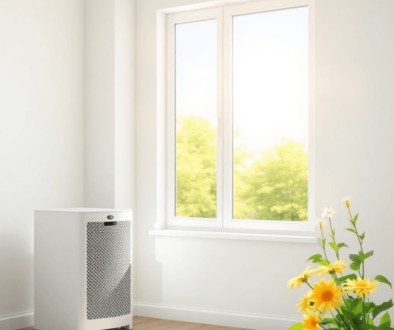Allergies (Allergic Rhinitis)
Allergic Rhinitis (Hay Fever): What You Need to Know
Allergic rhinitis often called hay fever is an allergic reaction that affects the nose and sinuses. It happens when your immune system overreacts to harmless triggers such as pollen, dust mites, mold, or pet dander. Instead of ignoring these particles, your body releases histamine, a chemical that causes inflammation and irritation.
Common Symptoms
The reaction can feel like a stubborn cold that never ends. Symptoms often include:
- Frequent sneezing (especially in bursts)
- Nasal congestion or a stuffy nose
- A runny nose with clear mucus
- Itchy, watery eyes (sometimes mistaken for conjunctivitis)
- A scratchy throat or postnasal drip
- Fatigue, since constant congestion disrupts sleep
Tip: If your ?cold? lasts longer than two weeks and happens around the same time every year, there?s a good chance it?s allergies.
Treatment Options
Medications
- Antihistamines: Block histamine to reduce sneezing, runny nose, and itching.
o Examples: Cetirizine (Reactine), Loratadine (Claritin), Fexofenadine (Allegra).
o Forms: Oral tablets, liquids, or nasal sprays (e.g., azelastine). - Nasal corticosteroid sprays: Reduce inflammation in the nose.
o Examples: Fluticasone (Flonase), Mometasone (Nasonex).
o Often considered the most effective first-line option for persistent symptoms. - Decongestants: Shrink swollen nasal tissues.
o Oral: Pseudoephedrine (Sudafed).
o Nasal sprays: Oxymetazoline (Otrivin).
o Warning: Nasal sprays should not be used longer than 3?5 days to avoid rebound congestion.
Immunotherapy
For people with severe or year-round allergies, allergy shots or tablets can help. These expose you to tiny amounts of the allergen over time, retraining your immune system to tolerate it.
- Example: Grass pollen tablets (e.g., Grastek) are available under specialist care.
- Downside: Treatment takes months to years, but it can dramatically reduce long-term symptoms.
Lifestyle Strategies
- Avoid triggers:
o Stay indoors on high-pollen days (check the daily pollen count online).
o Shower and change clothes after outdoor activities.
o Keep pets out of bedrooms and wash them regularly. - Environmental controls:
o Use HEPA air purifiers.
o Wash bedding in hot water weekly to kill dust mites.
o Keep windows closed during pollen season; rely on air conditioning. - Cleaning habits: Vacuum with HEPA filters, dust with damp cloths, and reduce clutter that collects dust.
- Nasal Irrigation
A simple but effective option. Rinsing your nose with a saline solution using a neti pot or squeeze bottle helps wash out allergens and mucus. Many patients find this improves breathing almost immediately. Just remember to use distilled, boiled, or filtered water?never tap water directly.
When to See a Pharmacist or Doctor
- Symptoms that don’t improve with over-the-counter medications.
- Allergies that trigger asthma symptoms like wheezing or shortness of breath.
- Frequent sinus infections or severe congestion that affects sleep and daily life.
At MisterPharmacist, we can recommend the right over-the-counter product, assess whether prescription options may help, and guide you toward allergy testing if needed. Everyone?s triggers and responses are different, so a personalized plan can make a big difference.
Takeaway: Allergic rhinitis may not be dangerous, but it can feel relentless. Between medications, lifestyle tweaks, and targeted treatments like immunotherapy, you don’t have to suffer through it. Talk to a pharmacist to find what works best for your symptoms and don’t just keep buying tissues by the box.


